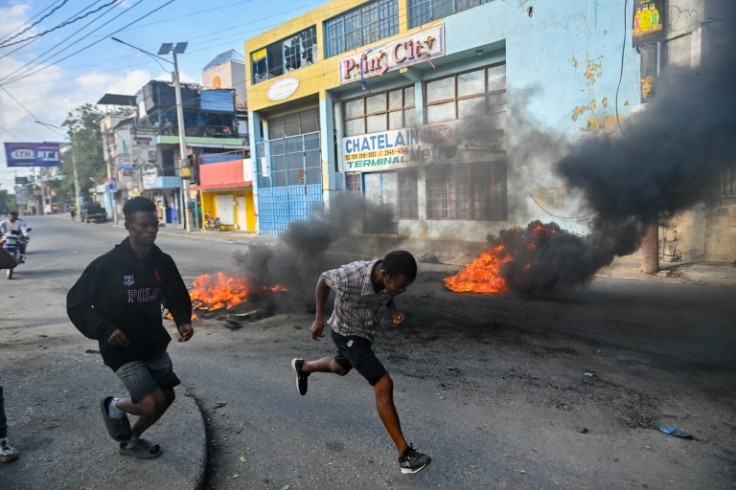
Haiti's Bernard Mevs Hospital, the country's only neurological trauma center left, was set on fire by criminal gangs, devastating a critical medical facility that had served the country's nearly 12 million people.
The 87-bed hospital, located in Port-au-Prince, had survived past crises, including the 2010 earthquake and a deadly Covid-19 outbreak. But it could not withstand the ongoing violence unleashed by gang members, who attacked the facility with Molotov cocktails.
The attackers destroyed several vehicles in the hospital's courtyard, including an ambulance, and set fire to millions of dollars' worth of equipment. Two CT scanners, a 3D X-ray machine, the lab, operating rooms, and the pediatric ward were all damaged or destroyed. The gangs also targeted the office of Dr. Marlon and Dr. Jerry Bitar, the twin brothers who founded the hospital, the Miami Herald reported.
The attack comes amid rising gang violence in the capital. Though the hospital had recently emptied of its patients, it had been a vital lifeline for police officers, victims of trauma, and even individuals needing complex surgeries.
Gang violence has disrupted many of the capital's hospitals, including the largest, the General Hospital, which remains closed. Some hospitals, like Doctors Without Borders/Médecins Sans Frontières, have partially reopened, but violence has made access to care increasingly difficult. Green, who has been following events closely, said the gangs had demanded a bribe from the hospital. "They said, if you don't give us cash, we'll burn it down," he reported.
The destruction leaves the country with even fewer options for medical care. While international aid continues to pour into other regions, Green criticized the lack of assistance for Haiti. "The international community is watching a nation deteriorate and doing nothing," he said.
As Haiti grapples with widespread violence, a lack of medical resources, and critical shortages of food and medicine, Marzouka remains deeply concerned. "People are dying from the most basic needs, like diabetes medicine," he said. "We're 700 miles from the U.S., and this could be fixed in a second."
Haitian authorities continue to struggle with ever-escalating violence, which has forced 50,000 people to flee their homes in the past two weeks alone. Haiti's children are at the heart of a worsening humanitarian crisis marked by hunger, displacement, and escalating violence that includes child soldiers, according to another report. Over 1.5 million children have lost access to education, and many face growing risks of exploitation, including recruitment into armed gangs, UNICEF reported during a U.N. special meeting.
Gang recruitment of minors has soared by 70% in the past year, with children now making between 30% and 50% of gang members, according to the U.N.'s leading child welfare agency, UNICEF. Reports of sexual violence against children have risen by 1,000%, further underscoring the dire situation.
The U.S. government, which is still carrying out deportation flights, has acknowledged Haiti's challenges. "The security conditions there remain incredibly fraught," said State Department official Tom Sullivan.
Efforts to restore stability through a multinational security mission led by Kenya are ongoing. However, nearly 20 Kenyan police officers serving in Haiti have reportedly submitted letters of resignation in recent months, citing delayed pay and inadequate working conditions.
Close to 200 people were killed in the Haitian capital over one weekend after a gang leader ordered the killing of elderly people he suspected of sickening his child, who ultimately died, through witchcraft. This incident brings the overall death toll for the year above 5,000, according to the UN human rights chief Volker Turk.
© 2025 Latin Times. All rights reserved. Do not reproduce without permission.





